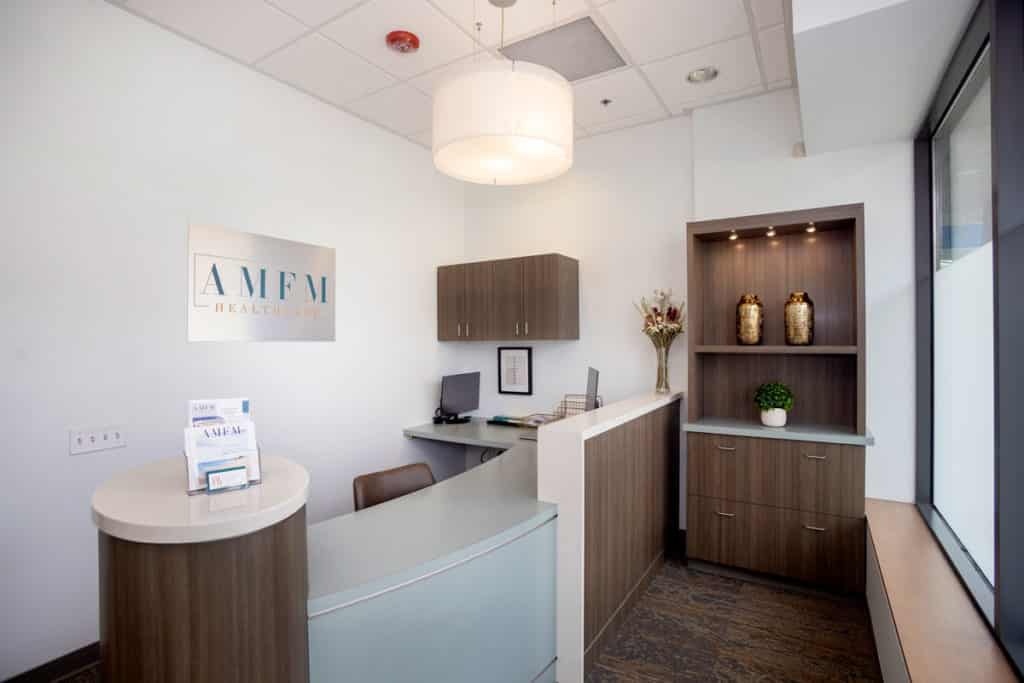
WELCOME TO
Mental health treatment centers for mood and thought disorders.
AMFM is an integrative residential treatment provider specializing in primary mental healthcare for adults in California, Virginia, and Washington state. We firmly believe in the importance of clinical excellence as the foundation for effective mental healthcare. Our supportive and warm home environment with personalized, 24/7 care, is overseen by our experienced team and licensed clinicians, ensuring a highly individualized treatment experience that effectively addresses a diverse range of clinical concerns.
Our programs change lives through evidence-based clinical care.
At AMFM, we specialize and treat a variety of mood and thought disorders, including the following:
At AMFM, we embrace a comprehensive approach to wellness, recognizing that recovery extends beyond conventional therapy and medication. Our philosophy is rooted in the belief that every aspect of our care from our evidence-based treatments to the nurturing of positive relationships and the healthy meals prepared by our chefs, “food is medicine” philosophy is crafted with warmth, strategy, and meticulous attention to detail.
From the moment clients step into our residential facilities, they are welcomed into a home-like environment, crafted not only by our skilled clinicians and therapists, but by every member of our team. Each member of our team is trained to provide understanding and compassion, ensuring that our clients feel supported throughout their wellness journey. Our treatments are meticulously planned yet remain flexible, tailored to meet the unique needs and personal preferences of our clients. This personalized approach ensures that the path to well-being is not only effective but feels right for our clients, every step of the way.
Understanding our clients’ backgrounds is crucial for developing an effective treatment plan. Each healing journey begins with understanding our client’s personal background, and our approach starts by attentively listening to these experiences. Through comprehensive assessments, we strive to learn more about our client’s symptoms, history, challenges, and strengths. We explore clinically proven methods and approaches that align with their values. With this thorough understanding, we craft a treatment plan that precisely matches their strengths and challenges. Our treatment plans are living documents, evolving as our clients progress, ensuring that their care remains as dynamic and unique as they are.
We understand that while medication can be an essential component of recovery, it should not be the sole focus. Our emphasis is on evidence-based, compassionate approaches that delve into and address the root causes of distress, complemented by medication when necessary. Our comprehensive care tackles both the symptoms and the underlying issues, fostering a more sustainable path to wellness. This holistic strategy ensures that each client receives not only immediate relief but also long-term healing.
We recognize that even the most effective treatments are not one-size-fits-all, underscoring our commitment to providing a diverse array of treatment options. Our offerings range from Cognitive Behavioral Therapy (CBT) and Dialectical Behavior Therapy (DBT) to Eye Movement Desensitization and Reprocessing (EMDR) and more, reflecting the varied needs of the individuals we serve. We are dedicated to having effective and helpful treatments readily available for our clients, ensuring that each person receives the care best suited to their unique circumstances.
We believe in the transformative power of community and experiential learning as integral components of the healing process. Our program fosters a sense of belonging and connection among clients, facilitating shared experiences that promote emotional and psychological growth. We incorporate a variety of experiential learning activities that allow clients to apply therapeutic concepts in real-world settings, enhancing their recovery and resilience. Through activities such as group therapy and community outings our clients not only learn from their own experiences but also gain insights from the journeys of others. This collective learning environment supports the development of critical life skills, such as communication, problem-solving, and emotional regulation, which are essential for long-term wellness.
There’s no part of you that doesn’t influence your mental health, and vice versa. Human beings can’t be separated into physical, mental, emotional, and spiritual components; we’re always everything at once. At AMFM, we shape our approach to recovery with this comprehensive understanding, making sure that all parts of you are thriving.

The food we eat plays a big role in how well we feel. Our chefs make meals that nourish the body and help us feel good mentally and emotionally. The “food as medicine” philosophy is a cornerstone of our health and nutrition program, taking full advantage of the way diet affects mental health.

Our goal isn’t just to fix the problems you came in with, but to help you become more resilient mentally and emotionally. With personalized therapy and supportive group dynamics, we explore and reframe narratives that challenge wellbeing. To help you navigate life’s challenges with confidence, we’ll provide the tools and insights you need to feel empowered and confident. In more ways than one, you’ll leave feeling stronger than when you came.
Our facilities are an integral part of the treatment process at A Mission for Michael. AMFM’s homes offer a calming environment for our clients making a difficult transition.
It’s critical for our clients to have a safe and structured environment to build the tools they need to help them heal. Our facilities are a stable environment for individuals who need a good place to develop tools and coping strategies to help maintain lasting healing.
Currently, AMFM has facilities located in Southern California, Washington, and Virginia.

We offer gender inclusive residential and intensive outpatient treatment for adult men and women who are seeking primary mental health services.

Virginia residential homes are staffed with specialized services to ensure a holistic approach, including physical therapy, yoga, and meditation.

We provide medication management and education, life skills training, group therapy, and individualized therapy with a designated treatment team.
AMFM is here to help you or your loved one take the next steps towards an improved mental well-being.





Copyright 2024 © A MISSION FOR MICHAEL. All rights Reserved | Privacy Policy